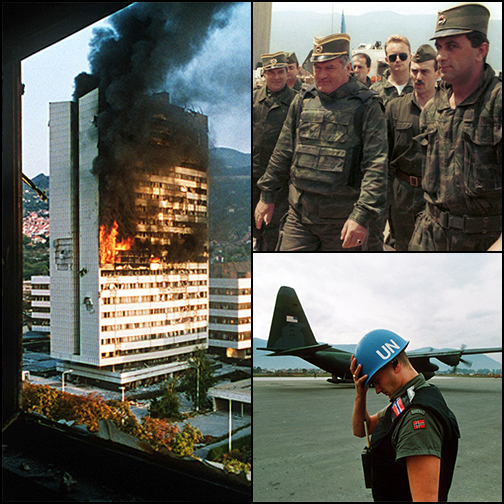 W
WThe following is an incomplete list of wars fought by Croatia, by Croatian people or regular armies during periods when independent Croatian states existed, from the early Middle Ages to the present day.
 W
WThe Austro-Turkish War (1663–1664) or fourth Austro-Turkish War was a short war between the Habsburg Monarchy and the Ottoman Empire. The Ottoman aim was to resume the advance in central Europe, conquer Vienna and subdue Austria. However, the Habsburg army under Raimondo Montecuccoli succeeded in halting the Ottoman army on its way to Vienna in the Battle of Saint Gotthard and destroy it, while another Austrian army won another victory at Léva. Despite these serious Ottoman defeats which checked their advance toward Vienna, the war ended for them with the rather favourable Peace of Vasvár.
 W
WSuleiman I's campaign of 1529 was launched by the Ottoman Empire to take the Austrian capital Vienna and thereby strike a decisive blow, allowing the Ottomans to consolidate their hold on Hungary. This was in response to Ferdinand I's daring assault on Ottoman Hungary.
 W
WThe Bocskai uprising was a great revolt in Hungary, Transylvania and modern Slovakia, between 1604 and 1606 against Rudolf II, Holy Roman Emperor, during the Long Turkish War. The leader of the rebels was Stephen Bocskai, a significant Protestant Hungarian nobleman. The great Ottoman war burdened the Hungarian Kingdom and led to famine and epidemics. The armies of the Christian states also destroyed as the Ottoman and Tatar forces.
 W
WThe Bosnian War was an international armed conflict that took place in Bosnia and Herzegovina between 1992 and 1995. Following a number of violent incidents in early 1992, the war is commonly viewed as having started on 6 April 1992. The war ended on 14 December 1995. The main belligerents were the forces of the Republic of Bosnia and Herzegovina and those of Herzeg-Bosnia and Republika Srpska, proto-states led and supplied by Croatia and Serbia, respectively.
 W
WThe Croat–Bosniak War was a conflict between the Republic of Bosnia and Herzegovina and the self-proclaimed Croatian Republic of Herzeg-Bosnia, supported by Croatia, that lasted from 18 October 1992 to 23 February 1994. It is often referred to as a "war within a war" because it was part of the larger Bosnian War. In the beginning, Bosniaks and Croats fought in an alliance against the Yugoslav People's Army (JNA) and the Army of Republika Srpska (VRS). By the end of 1992, however, tensions between Bosniaks and Croats increased. The first armed incidents between them occurred in October 1992 in central Bosnia. Their military alliance held out until early 1993 when their cooperation fell apart and the two former allies engaged in open conflict.
 W
WThe Croatian War of Independence was fought from 1991 to 1995 between Croat forces loyal to the government of Croatia—which had declared independence from the Socialist Federal Republic of Yugoslavia (SFRY)—and the Serb-controlled Yugoslav People's Army (JNA) and local Serb forces, with the JNA ending its combat operations in Croatia by 1992. In Croatia, the war is primarily referred to as the "Homeland War" and also as the "Greater-Serbian Aggression". In Serbian sources, "War in Croatia" and (rarely) "War in Krajina" are used.
 W
WThe Long Turkish War or Thirteen Years' War was an indecisive land war between the Habsburg Monarchy and the Ottoman Empire, primarily over the Principalities of Wallachia, Transylvania, and Moldavia. It was waged from 1593 to 1606 but in Europe it is sometimes called the Fifteen Years War, reckoning from the 1591–92 Turkish campaign that captured Bihać.
 W
WThe Ottoman–Habsburg wars were fought from the 16th through the 18th centuries between the Ottoman Empire and the Habsburg Monarchy, which was at times supported by the Holy Roman Empire, Kingdom of Hungary, Polish–Lithuanian Commonwealth, and Habsburg Spain. The wars were dominated by land campaigns in Hungary, including Transylvania and Vojvodina, Croatia and central Serbia.
 W
WThe Croat–Bosniak War was a conflict between the Republic of Bosnia and Herzegovina and the Croatian Community of Herzeg-Bosnia, supported by Croatia, that lasted from 19 June 1992 – 23 February 1994. The Croat-Bosniak War is often referred to as a "war within a war" because it was part of the larger Bosnian War.
 W
WWorld War II, also known as the Second World War, was a global war that lasted from 1939 to 1945. It involved the vast majority of the world's countries—including all the great powers—forming two opposing military alliances: the Allies and the Axis. In a state of total war, directly involving more than 100 million people from more than 30 countries, the major participants threw their entire economic, industrial, and scientific capabilities behind the war effort, blurring the distinction between civilian and military resources. World War II was the deadliest conflict in human history, marked by 70 to 85 million fatalities. Tens of millions of people died due to genocides, premeditated death from starvation, massacres, and disease. Aircraft played a major role in the conflict, including in the use of strategic bombing of population centres, and the only uses of nuclear weapons in war.